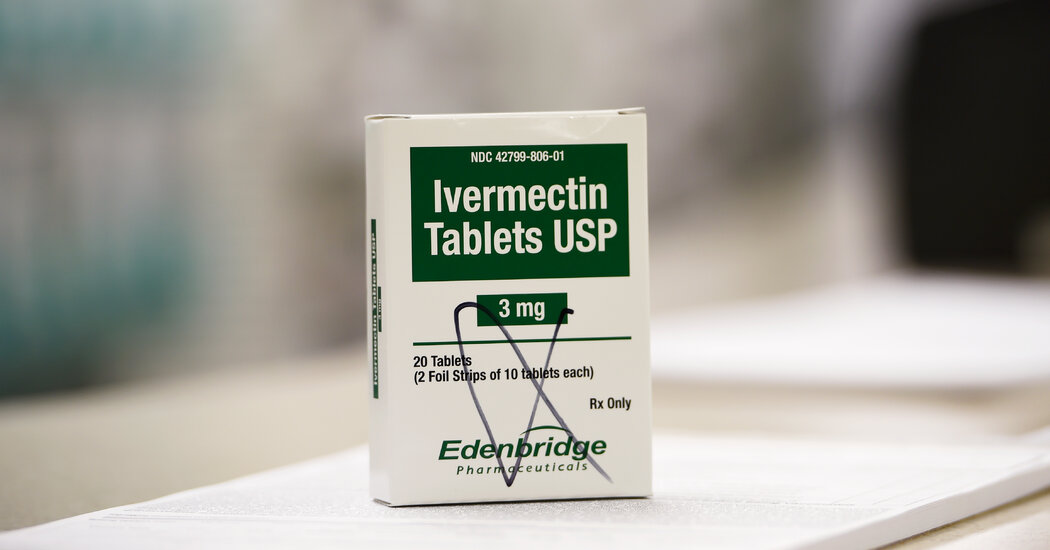
The antiparasite drug ivermectin does not meaningfully reduce the time needed to recover from Covid, according to a large study posted online Sunday. It is the largest of several clinical trials to show that the drug, popular since the early pandemic as an alternative treatment, is not effective against the virus.
The new trial, conducted by researchers at Duke University and Vanderbilt University, tested more than 1,500 people with Covid, about half getting the drug and the others a placebo. The study has not yet been published in a scientific journal.
“Given these results, there does not appear to be a role for ivermectin outside of a clinical trial setting, especially considering other available options with proven reduction in hospitalizations and death,” Dr. Adrian Hernandez, the executive director of the Duke Clinical Research Institute who led the trial, said in a statement on Sunday night.
In 2020, laboratory experiments on cells suggested that ivermectin might block the coronavirus. The results triggered widespread excitement because ivermectin is an inexpensive drug that has been safely used in people for decades against parasitic worm infections.
The drug grew wildly popular, despite a lack of results from large randomized clinical trials. When those studies finally finished, they proved disappointing. In March, researchers published a study in which 679 people diagnosed with Covid received ivermectin. The drug did not significantly reduce their risk of going to a hospital for Covid compared with people who took a placebo.
The new study of ivermectin was part of a larger effort, organized by the National Institutes of Health, to identify existing drugs that might help treat Covid. Known as Accelerating COVID-19 Therapeutic Interventions and Vaccines-6, or ACTIV-6 for short, the program has also been testing an antidepressant and an antiasthma drug.
Dr. Hernandez and his colleagues gave ivermectin to 877 volunteers who were diagnosed with Covid, while 774 others received a placebo. The researchers then observed how their cases progressed.
People on ivermectin felt unwell for an average of 10.96 days, while people on the placebo took 11.45 days — a difference of about 12 hours. There was no statistically significant difference in the risk each group faced of going to the hospital. One death was observed during the trial — of a volunteer who received ivermectin.
Almost half of the volunteers had been vaccinated, the researchers said. Their shots may have reduced the overall number of severe Covid cases, making it harder to detect a benefit.
Despite the negative results, the researchers did not entirely rule out the possibility that ivermectin might have a place in treating Covid. Among 90 people who were already suffering from severe Covid when they entered the trial, those who tried ivermectin appeared to fare better than did those on the placebo. But the small numbers made it impossible to draw any firm statistical conclusions about ivermectin’s benefit. The effect might have been the result of chance.
To investigate that result further, the researchers will keep testing ivermectin at higher doses. A new set of volunteers will receive 50 percent more of the drug in each dose and for six days instead of three.
“Given the favorable safety profile and continued public interest in ivermectin, the ACTIV-6 team will continue to study this higher dose to determine whether it will make enough of a difference to be considered for the treatment of mild-to-moderate COVID-19,” Dr. Susanna Naggie, an infectious disease expert at Duke University, said in the statement.




